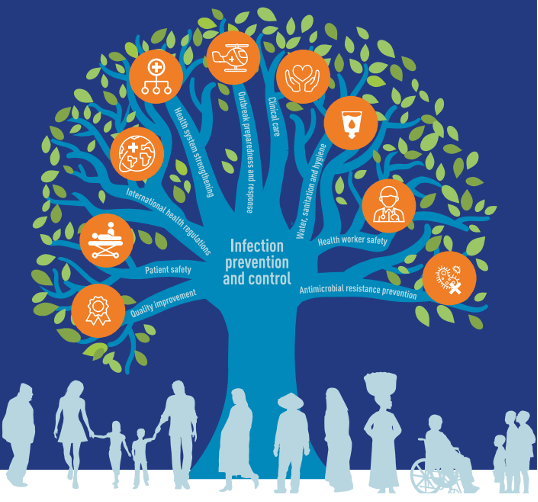Mary Madison, RN, RAC-CT, CDP
Clinical Consultant – Briggs Healthcare
The World Health Organization (WHO) posted its first ever Global Report on Infection Prevention and Control – Executive Summary on May 6, 2022. This is a 30-page document.

“This document provides a detailed summary of the content of the WHO global report on infection prevention and control (IPC). It includes a global situation analysis of how IPC programmes are being implemented in countries around the world, according to evidence from the scientific literature and various reports, and new data from WHO studies. It also highlights the harm to patients and health workers caused by health care-associated infections and antimicrobial resistance, addresses the impact and cost-effectiveness of IPC programmes and the strategies and resources available to countries to improve them. Primarily, this document targets those in charge of making decisions and formulating policies in the field of IPC at the national, subnational and facility levels.
The COVID-19 pandemic and other recent large disease outbreaks have highlighted the extent to which health care settings can contribute to the spread of infections, harming patients, health workers and visitors, if insufficient attention is paid to infection prevention and control (IPC). But a new report from the World Health Organization (WHO) shows that where good hand hygiene and other cost-effective practices are followed, 70% of those infections can be prevented.
Today, out of every 100 patients in acute-care hospitals, seven patients in high-income countries and 15 patients in low- and middle-income countries will acquire at least one health care-associated infection (HAI) during their hospital stay. On average, 1 in every 10 affected patients will die from their HAI.
People in intensive care and newborns are particularly at risk. And the report reveals that approximately one in four hospital-treated sepsis cases and almost half of all cases of sepsis with organ dysfunction treated in adult intensive-care units are health care-associated.
The impact of healthcare associated infections and antimicrobial resistance on people’s lives is incalculable. Over 24% of patients affected by health care-associated sepsis and 52.3% of those patients treated in an intensive care unit die each year. Deaths are increased two to threefold when infections are resistant to antimicrobials.
Many countries are demonstrating strong engagement and progress in scaling-up actions to put in place minimum requirements and core components of IPC programmes. Progress is being strongly supported by WHO and other key players. Sustaining and further expanding this progress in the long-term is a critical need that requires urgent attention and investments.
The report reveals that high-income countries are more likely to be progressing their IPC work and are eight times more likely to have a more advanced IPC implementation status than low-income countries. Indeed, little improvement was seen between 2018 and 2021 in the implementation of IPC national programmes in low-income countries, despite increased attention being paid generally to IPC due to the COVID-19 pandemic. WHO will continue to support countries to ensure IPC programmes can be improved in every region.
WHO is calling on all countries around the globe to increase their investment in IPC programmes to ensure quality of care and patient and health workers’ safety. This will not only protect their populations, increased investment in IPC has also demonstrated to improve health outcomes and reduce health-care costs and out-of-pocket expenses.”
I encourage you to review and share this important report with your team and colleagues. Infection Prevention and Control takes a village and that village involves the entire world.
